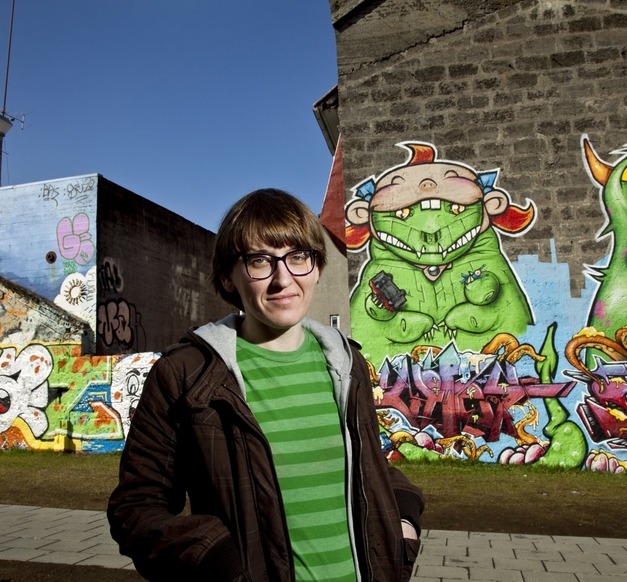
Íris Ellenberger, Assistant Professor at the Faculty of Subject Teacher Education
Migration has always had an impact on societies, not least today as we face the largest waves of migration since the end of WWII in 1945. A steady stream of refugees from the war zones in the Middle East are a major factor in this development. A large number risk everything attempting to cross the Mediterranean in a variety of vessels in hopes of a better life in Europe. Scientists predict increased migration in the near future due to climate change and associated shortages of food and water.
Iceland has changed visibly in the last two decades due to immigration from Eastern-Europe, especially Poland. However, migration and its influence is by no means a new phenomenon, as historian Íris Ellenberger has discovered in her research.
Mobility of people
“My study concerns the influence of the mobility of people on local culture and Icelandic social structures in the years 1890-1920. I focus on Reykjavík, where two different streams of migration, domestic and international merged. Their interaction contributed to making Reykjavík the city it became. How this came about is also part of the study,” says Íris who is currently an Assistant Professor at the University of Iceland. She completed her Doctorate in History from the University in 2013. She is currently working on historical research, including the study of gender in Iceland, and the history of mobility focusing on communication, struggles and the mingling of different cultural elements in Icelandic urban areas. Íris has been noted for her writing; she is a regular contributor to the online magazine for the humanities in Iceland, Hugrás; she has published a number of books, and written numerous articles on her research.
“My study concerns the influence of the mobility of people on local culture and Icelandic social structures in the years 1890-1920. I focus on Reykjavík, where two different streams of migration, domestic and international merged. Their interaction contributed to making Reykjavík the city it became. How this came about is also part of the study,” says Íris Ellenberger.

Foreigners powerful in Reykjavík
Íris’s research on mobility follows up on her doctoral thesis of 2013. The thesis dealt with mobility and struggles, especially concerning the social status of Danes in Iceland in the period 1900-1970. “My doctoral thesis showed that foreigners were very powerful in Reykjavík around 1900, however, most of the population growth was due to Icelandic migration from rural areas at that time.” She therefore adjusted for focus from one specific group to the tension that occurs when two groups with different backgrounds meet.
“It emerges that the upper class’s connection to Denmark, and its access to the bourgeois culture of the continent were the main preconditions for its status. The mobility of the upper class was a major element in one of the basic characteristics of Reykjavík around 1900, i.e. class division,” says Íris. The next group she wants to take into consideration is how foreign sailors influenced the town and is confident those findings will be interesting.
Research is foundational to democracy
“My study shows that mobility is not a new thing in Iceland. On the contrary, migration was a major factor in forming the society and culture of Reykjavík, where different streams of people, products and ideas met, struggled and merged around 1900,” says Íris. Reykjavík is probably not unique so the study provides an historical perspective on migration studiesÍris shows that human mobility has impacted our history and culture more than is normally assumed. “The current discourse on migration in Iceland takes for granted that the impact of migration on Icelandic society is a contemporary phenomenon. This is not the case,” she says.
Íris says she believes in research as foundational to democracy, she says it is an “important part of reflective decision making, providing us with tools to critique the decisions of those in power, as well as their stated and unstated premises. Research provides the basis for critical stance towards authority and is thus essential in democratic societies.”


